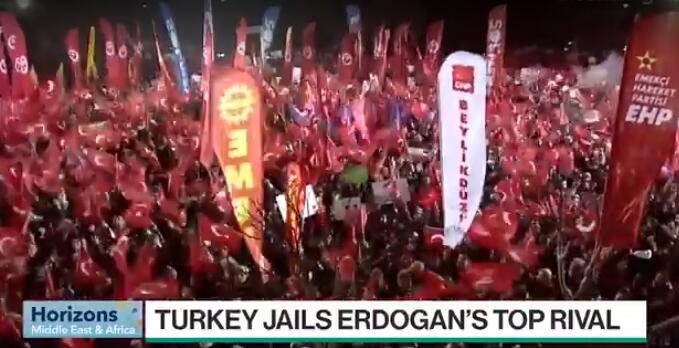Turkey’s financial leaders are scrambling to stabilize markets after the arrest of Istanbul Mayor Ekrem Imamoglu triggered billions in capital outflows. As protests spread and investor confidence wavers, officials are reaffirming economic policy continuity in a bid to restore calm.

Turkey’s government is moving swiftly to calm market jitters following last week’s arrest of Istanbul Mayor Ekrem Imamoglu, a popular opposition leader and political rival to President Recep Tayyip Erdogan. The incident sent shockwaves through Turkish financial markets, prompting emergency interventions and renewed engagement with international investors.
On Tuesday, Finance Minister Mehmet Simsek and Central Bank Governor Fatih Karahan are scheduled to speak with global investors via a teleconference hosted by Citigroup and Deutsche Bank, in a high-stakes attempt to restore investor confidence. According to the Treasury’s official announcement, the call will take place at 1:00 p.m. London time.
Arrest Sparks Market Turmoil
Imamoglu’s detention and formal arrest last Wednesday triggered mass protests across Turkey and set off a wave of selling pressure on Turkish assets. Last week alone, Turkey’s stock market plunged 17%, the lira lost ground, and bond yields surged—despite the central bank’s efforts to intervene.
In a rare emergency move, the central bank raised its overnight interest rate and intervened in the currency market, injecting $11.2 billion in a single day (March 19), according to Bloomberg estimates. Officials also imposed short-selling bans on equities in a bid to prevent further market routs.
Erdogan Endorses Economic Team
In an effort to bolster confidence, President Erdogan publicly backed Finance Minister Simsek’s policy framework on Monday evening, signaling continued support for pro-market reforms. “We will never allow the gains we have made from the economic program to be harmed,” Erdogan declared after a cabinet meeting. “Our institutions have both the authority and the will to ensure healthy market mechanisms.”
That endorsement helped stabilize the lira, which held steady at around 37.98 per U.S. dollar on Tuesday morning. The Borsa Istanbul rebounded 2.7%, building on Monday’s gains.
Risk Metrics Improve Slightly
Despite the initial chaos, some financial indicators have begun to recover. Turkey’s five-year credit default swaps (CDS)—a key barometer of default risk—dropped to 304 basis points, down from a one-year high reached last Friday, though still elevated compared to pre-crisis levels.
Bond markets also rallied, with yields on 2-year and 10-year government bonds falling by 233 and 164 basis points, respectively.
Political Fallout Escalates
While financial officials focus on damage control, political tensions continue to rise. Erdogan has condemned ongoing protests as “evil,” and 41 demonstrators have been detained for allegedly insulting the president and participating in unauthorized gatherings, state media reported.
Meanwhile, Foreign Minister Hakan Fidan is set to meet U.S. Secretary of State Marco Rubio in Washington, though American officials have so far avoided directly criticizing the Imamoglu arrest. A State Department spokesperson last week referred to it as an “internal judicial matter.”
Opposition party leader Ozgur Ozel has called for boycotts of businesses linked to pro-government entities, including gas stations, coffee chains, and media outlets.
Policy Tools on the Table
Authorities are also weighing further economic measures to prevent lira devaluation, such as reducing withholding taxes on lira deposits, aiming to discourage residents from converting their savings into dollars.
The central bank has been aggressively draining excess lira liquidity to reinforce tight monetary policy. Data shows system-wide excess liquidity has dropped from 1.2 trillion lira on March 18 to just 234 billion lira as of Tuesday.
Conclusion
With political unrest brewing and foreign capital flowing out, Turkish leaders are walking a fine line. Their latest outreach to investors may help steady nerves temporarily, but sustained market recovery will depend on both economic clarity and political stability in the weeks ahead.